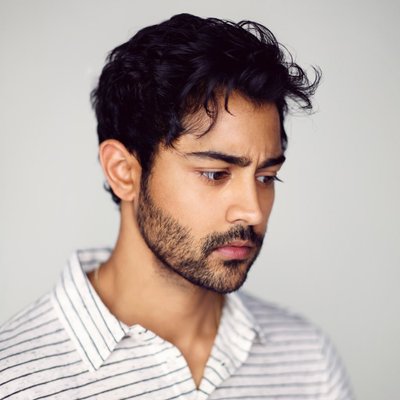By Sugandha Rawal
New Delhi– Manish Dayal remembers growing up watching Indians play the roles of cab drivers or terrorists on screen, but this was not surprising for him. Now the Indian-American actor-director is determined to start a dialogue around race and justice with his projects.
He pointed out that there is resurgence of incidents against South Asians, Sikhs, Arabs and Muslims under Donald Trump’s presidency in the US.

Manish stepped behind the camera with the short film “Fifteen Years Later”, which was screened at the Indian Film Festival of Los Angeles in April. It explores race relations, police brutality and how things in the US changed after the 9/11 attacks.
“I wanted to tell a story which shines light on the complexities faced in America today. The story is about two young guys… Their life after the 9/11 tragedy. How their life has changed after 15 years of the incident. In certain ways, they have to heal each other from this act of violence,” Manish told IANS in an interview over phone from New York.
“I hope it promotes discussion about race, justice and law enforcements because that is an important discussion in our country,” he added.
The actor revealed that many events against South Asians and other communities in the US go unreported.
“That is why I wanted to tell such a story with my first film. Because it is important that we all are on the same page and know what is happening in our countries,” added the actor, who traces his roots back to India.
Manish has starred in a string of shows like “Rubicon”, “Halt”, “Catch Fire”, “90210”, “CSI: Los Angeles” and “Outsourced”. He is currently enjoying essaying the role of Dr. Devon Pravesh in “The Resident”, which airs in India on Star World.
At a time when there’s unrest in Hollywood with the conversations around diversity and lack of representation, Manish says it is not only about adding more people of colour in the storylines, but making them more powerful.
“I talk about the lack of representation all the time. It is not surprising, but revealing. When I was growing up, watching cab drivers and terrorists on screen was the norm… It is about us trying to imagine ourselves in the protagonist’s shoes. South Asian Americans didn’t really have that experience so much. But now we are seeing more and more people who look like us on screen.”
It is a tricky zone to be in.
Manish says it is important to see how “we are looked at? What are we doing when we are on screen? How are we influencing the story? Are we just on the margin of the story or are we influencing the environment that we are in?”
Of his own roots, Manish said: “I am Indian American. My mom is Canadian, my dad was English. I read the Bible and Gita. This is what America means. Immigrants, like my parents, arrived in this country with hope of starting new life. Our duty is very different.”
What’s the duty?
“As first generation, we have a ground to pave and images to portray.”
Manish had his share of troubles finding an entry to the industry, and breaking the notions attached to his origin country at the same time.
“When you are young and you trying to break through, you want to work. But you also need to understand that you have to maintain your dignity. There were instances which challenged me. Communication is really the key.”
Recalling one incident, he said: “When I was younger, a casting director asked ‘Where are you from?’. And I knew what she was really asking me. She wanted me to say ‘I am from India’. But I said ‘I am American’. She then asked me, ‘Where are you really from?’. They have this dialogue all the time in the business.
“You have to ask yourself — you give them the answer they want or you want to give them the answer that preserves your dignity.”
But he is grateful that he has portrayed characters which are not tied to their ethnicity.
At the moment, Manish is planning his own feature film on a young journalist who goes to Congo to report first democratic election in over 60 years. (IANS)













